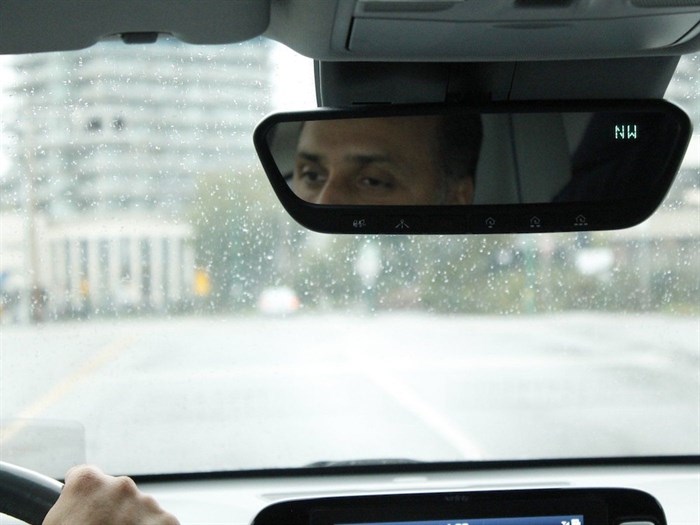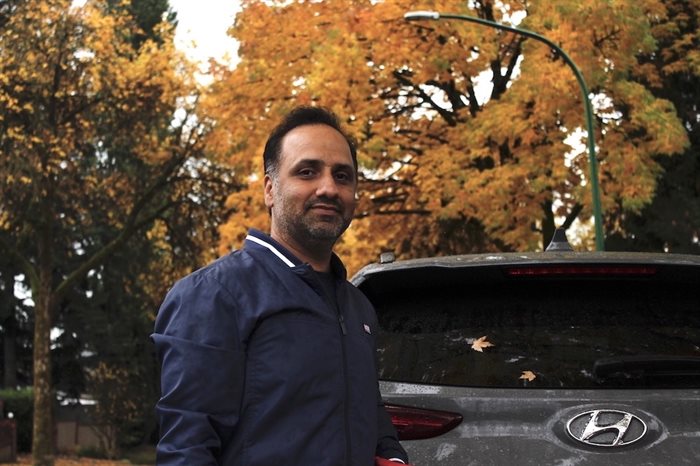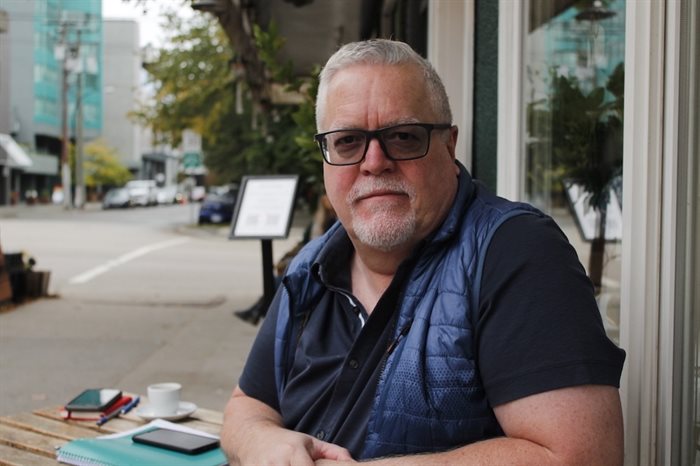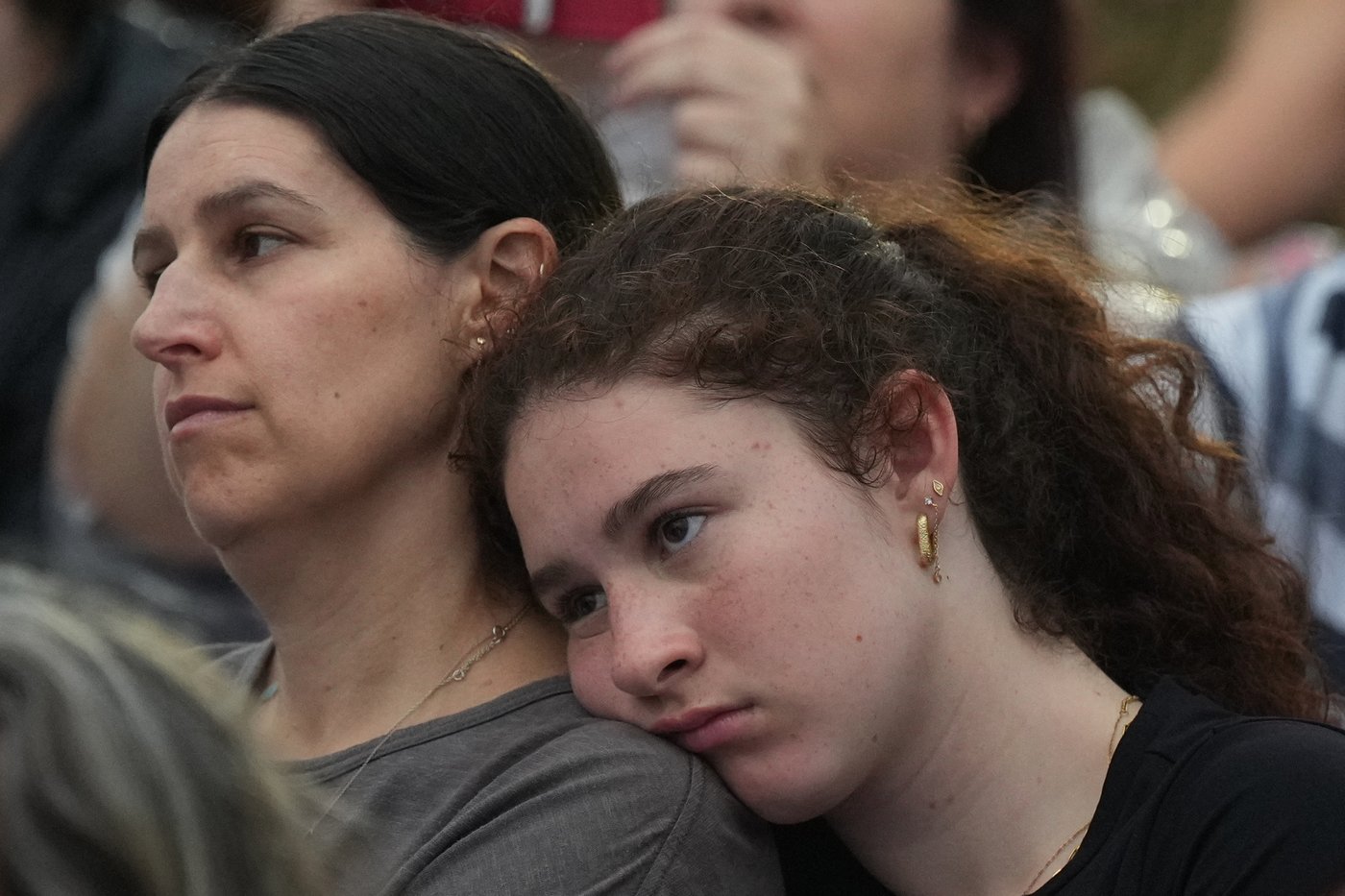Here’s what gig delivery work is like in BC

It’s Thanksgiving Monday, and Sandeep “Monty” Jolly sits in his grey Hyundai outside an East Vancouver Walmart superstore, waiting for a decent delivery job to flash up on his phone.
One by one, they start buzzing in. Uber, DoorDash, SkipTheDishes. Jolly eyes his phone like a stockbroker watching a ticker, waiting for a task that’s worth the money. He can’t afford to sit idle, not getting paid. But a job that lands him in a traffic jam or maroons him in a far-flung location where there are no new deliveries to grab costs him money.
“One bad order and your whole day, your whole mood, everything is gone,” Jolly said.
He settles on a big job — a grocery delivery to a house in the upscale Southlands neighbourhood on the other side of the city. It will pay about $28, depending on what the customer tips. The app estimates it will take an hour and six minutes. But that’s only if we find everything they want, and fast.
He races through the Walmart, hunting for vegan chicken strips and rotini. I try to help, grabbing frozen pizzas from the shelves and tracking down a container of organic Greek yogurt.
Our last item is a pack of sesame bagels. But the store is out of stock of the brand the customer wants. Jolly tries to phone the customer, but they don’t pick up. He can’t complete the order or pick up a substitute without their permission.
We spend seven agonizing minutes waiting. Every second counts.
Jolly is one of thousands of people in the Lower Mainland making a living on Uber and other ride-hailing and food delivery apps, a precarious business where drivers work without benefits and protections guaranteed to most by law. For Jolly, there are no sick days, minimum wage or coverage if he is injured on the job.
That might be about to change. British Columbia’s government has promised legislation it says would set new minimum standards for “gig workers” in the ride-hailing and food delivery business.
Harry Bains, the province’s labour minister, told The Tyee those changes could come as soon as the fall sitting, though he has not said what exactly the province will do. Uber, meanwhile, has lobbied aggressively for its own set of regulations it says set a new standard for gig worker rights.
In the middle are drivers like Jolly, who is hopeful the government’s intervention will give him some help to provide for his family.
“We are independent contractors,” Jolly said. “But they are a multibillion-dollar company, and we are not even getting basic rights.”
Working for an algorithm
Jolly began driving for Uber shortly after he and his family moved to Vancouver from Delhi last year.
In India, Jolly worked in the export business, he said, and he has experience working in accounting and financial services. But he struggled to find a job once he gained his permanent residency.
His wife is recovering from surgery, and so Jolly has become the breadwinner for them and their two children. For about seven months, he’s made ends meet by making deliveries on apps. He can set his own hours, which gives him time to help his wife take care of their young son.
The Tyee rode with Jolly during a shift. In a whirlwind afternoon, he brings four tall cups of bubble tea to a suite in Burnaby (about $5; delivery time 15 minutes), drops off a pizza and a bottle of Pepsi at a basement suite (about $11; 25 minutes) and lugs the groceries to a detached home in south Vancouver (about $28; more than an hour).
All of those prices — and times — are estimates provided by the company, meaning Jolly might make less if someone doesn’t tip well. Similarly, an order estimated to take 30 minutes might take much longer if he gets stuck in traffic or can’t find parking.
Highrises are the worst. If the customer demands it, Jolly has to fumble with a buzzer and then take the food up an elevator, all of which takes time. If there’s no free parking, that might cost money too.
When Jolly doesn’t have a good order, he’s parked on the side of the road, hoping for something with decent pay.
There are no reliable estimates on exactly how many people in the Lower Mainland and in British Columbia are working on these apps, or how much money they make. But in January 2023, Statistics Canada reported about 250,000 Canadians reported income from a ride-hailing or food delivery app. Of those, about 31,500 lived in the Metro Vancouver area.
Nationally, more than half of them were landed immigrants like Jolly.
Uber and other app companies say the lion’s share of their drivers work to supplement other sources of income. But in a survey of more than 1,000 such workers conducted this year and in 2022, the B.C. government found more than half depend on their income from gig work. For four in 10, it was their only source of money.
Some, like Jolly, say they’re struggling to make ends meet. Jolly makes between $15 and $20 per hour, he said. On a bad day, he might make less than B.C.’s $16.75 minimum wage.
Jolly’s family is staying with his brother, which means rent is not an issue. But a growing group of drivers have been organizing protests, saying the low pay offered by apps have made it impossible to pay bills.
It’s not just the rising cost of living. Some workers say the apps have been cutting payments.
Guy Dansereau began driving for Uber last year to help pay bills while he got a consulting company off the ground. He’s meticulously tracked his costs and earnings across more than 3,500 trips he’s taken on the app.
What he’s found is that his average wage yo-yos wildly. In his first quarter, his hourly wages were more than $27, thanks in part to low expenses. (He and Jolly both drive electric cars.)
But in the first quarter of 2023, his hourly earnings fell to less than $21. He said he’s started to work more hours just to make the same amount of money.
“It’s getting to a point where the hours I need to work and the level of frustration that keeps happening, it’s not worth it. I can see my overall wages are going to start dropping,” Dansereau said.
Drivers for apps like Uber, Lyft and DoorDash are considered independent contractors, not employees. They are paid by the delivery, deciding whether to accept the price offered by the company’s algorithms for each job. Drivers aren’t told how much the customer pays, or how big their share is.
Some drivers have hit a breaking point. Kuljeet Singh, an organizer for Uber drivers in the Lower Mainland, has taken to sharing screenshots of Uber fares showing the small slice drivers like him take home.
Part of the problem, Dansereau said, is that companies like Uber place no cap on how many drivers can be on the road. That, in turn, means lower wages for everyone.
“There’s always going to be that driver who is willing to go farther for less money,” Dansereau said.
Some jurisdictions, like New York City, have responded by capping the number of drivers. Others have instituted minimum wages for drivers doing such work. Uber itself has tabled a proposal saying it supports paying 120 per cent of the minimum wage to drivers.
But there’s a catch. The company wants to pay only for “engaged time,” when a driver is actively performing an assignment. Many drivers like Jolly may spend 10 or 20 minutes at a time waiting for a good assignment. And if none are available, they might switch to another app like DoorDash or Lyft to find a better one.
Jolly said that practice is a necessity for him. “Sometimes I don’t get any orders — not even a bad one,” he says as he pulls into a Denny’s parking lot to pick up someone’s late lunch. “So depending only on Uber to give me orders doesn’t make sense. It’s impossible.”
But issues like “multi-apping” have made the profession that much harder for government to regulate. “It’s not a typical employer-employee relationship,” Labour Minister Harry Bains said in an earlier interview with The Tyee.
Case in point: injury coverage. When most workers are hurt on the job in British Columbia, the province’s compensation board reimburses them for lost wages and rehabilitation.
There is no such compensation for ride-hailing and delivery workers, as they are considered contractors. Earlier this year, one B.C. Uber driver was unable to work after he was assaulted on the job, an attack that was caught on his dashcam. He ended up returning home to India after WorkSafeBC denied his claim.
Nor do they get sick pay. Dansereau recently recovered from a bout of shingles that left him unable to work for more than a month. “You have zero protection. It’s a choice you make going in, but you don’t expect something like shingles that incapacitates you for five weeks,” he said. He said he was OK thanks to his savings and his husband’s income, but illness could be ruinous for others.
“If you’re the breadwinner in your family and you’re doing this full time, and then something like this happens to you, it’s done,” he said.
Last January, Jolly hurt his knee while delivering an order. Food spilled everywhere. He spent two days recovering, but after that, he said he had to get back to work.
“After two days, I didn’t have any other option. I had to drive,” Jolly said.
Making the fix
For years, academics and politicians have debated how — and whether — to regulate the new world of gig work.
B.C. is just the latest battleground.
Uber has pushed a set of policies that include a minimum wage for engaged time, the right for workers to join a union and injury coverage — though the company has not said how much it would pay towards that.
Some experts, meanwhile, have argued drivers should receive the same rights given to other employees in British Columbia. They argue the drivers already meet the criteria.
Many, like Jolly, are recent immigrants who are supporting a family while they search for a more permanent job in a challenging economic market.
A minimum wage is at the top of his requests for a government bill. He also thinks the company should have to be more transparent about tips and the costs it charges customers. And he says he’d be open to being designated as an employee, even if it meant he could work for only one company.
“I don’t mind working as an employee if Uber is getting us what we need. The pension benefits, the health benefits if I get into an accident — if they gave me those benefits, I wouldn’t mind working only with Uber,” Jolly said.
Dansereau said he wants a living wage — which was set at just over $24 an hour in Metro Vancouver last year — for Uber drivers. He also said he supports part of Uber’s joint proposal with the United Food and Commercial Workers, which would allow those drivers to join a union.
“Give us the option to buy in. Give us the option to get into a union. But we’ve got to be realistic with the demands,” Dansereau said.
Dansereau said logistical support for Uber drivers is also a chronic issue. Last year, the company launched a program called Uber Crew in Canada, where they canvassed some star drivers on ways to improve the app. Dansereau was one of 11 members. But he said the company rarely implemented his suggestions, which ranged from software bugs to incorrect information the app provided about traffic and construction in Vancouver.
“It was completely unrelated to the actual problems we were having as drivers,” he said.
He said he’s also not confident in the government’s ability to take on the company if B.C. opts for tough legislation.
“I honestly don’t think Uber will ever agree to that. Where other political institutions have tried in California, in the state of Washington, they have never won. The political institution has never won. Uber has lobbied them to the point that it will not happen,” Dansereau said.
Jolly and Dansereau have other complaints, too, not all of which can be solved by the province. Jolly is endlessly frustrated by high parking costs; Dansereau, a Montrealer, hates flashing green lights.
Both of them plan to get out of the business: Dansereau by the end of the year, and Jolly as soon as he can find a more stable job. His dream is to start his own business, move out of his brother’s place and buy his family their own home.
But first, he has to deliver a trunkful of groceries to the other side of town.
“We are not getting paid. We are not getting minimum benefits,” Jolly said. “Who would not be frustrated?”





